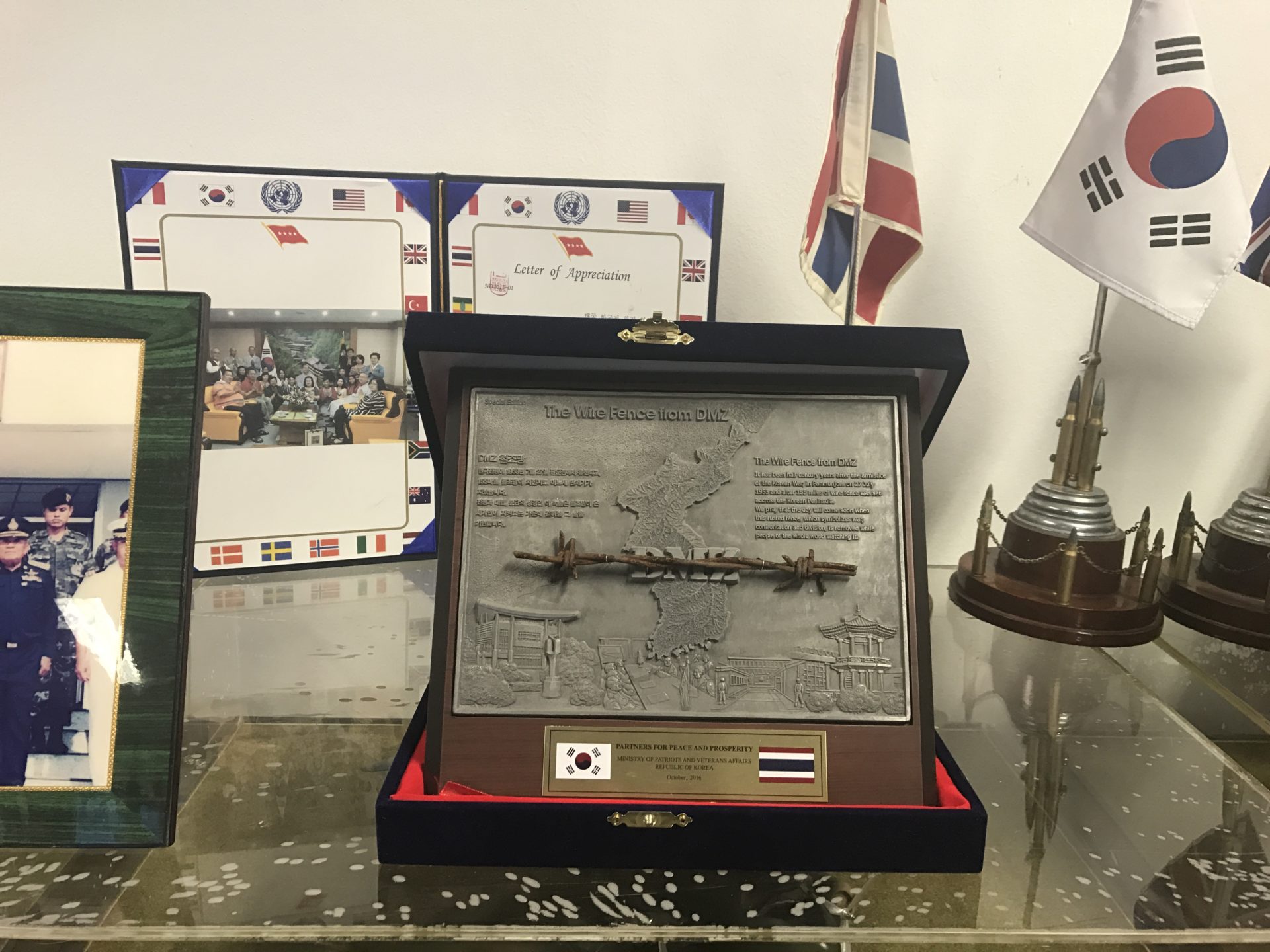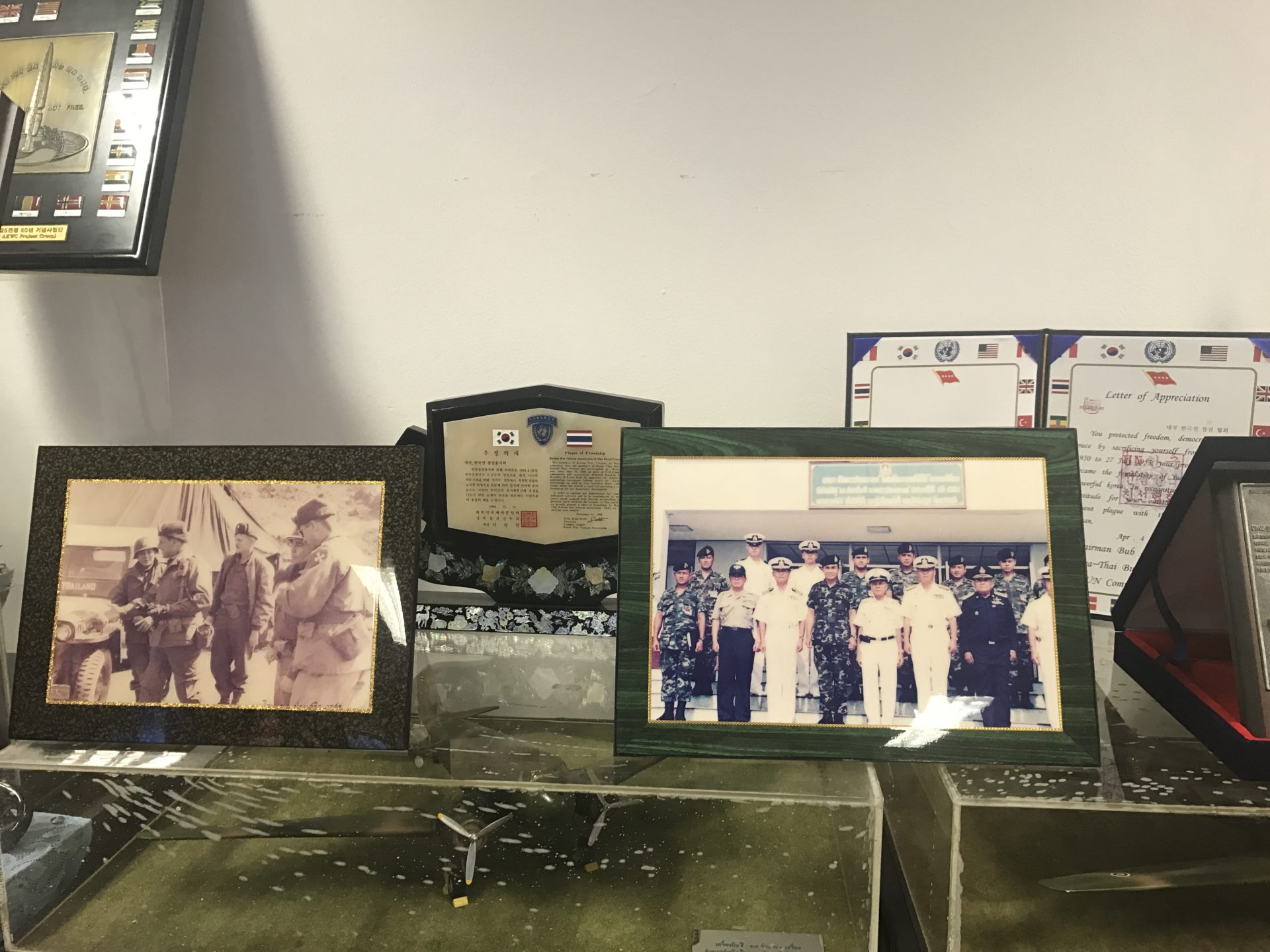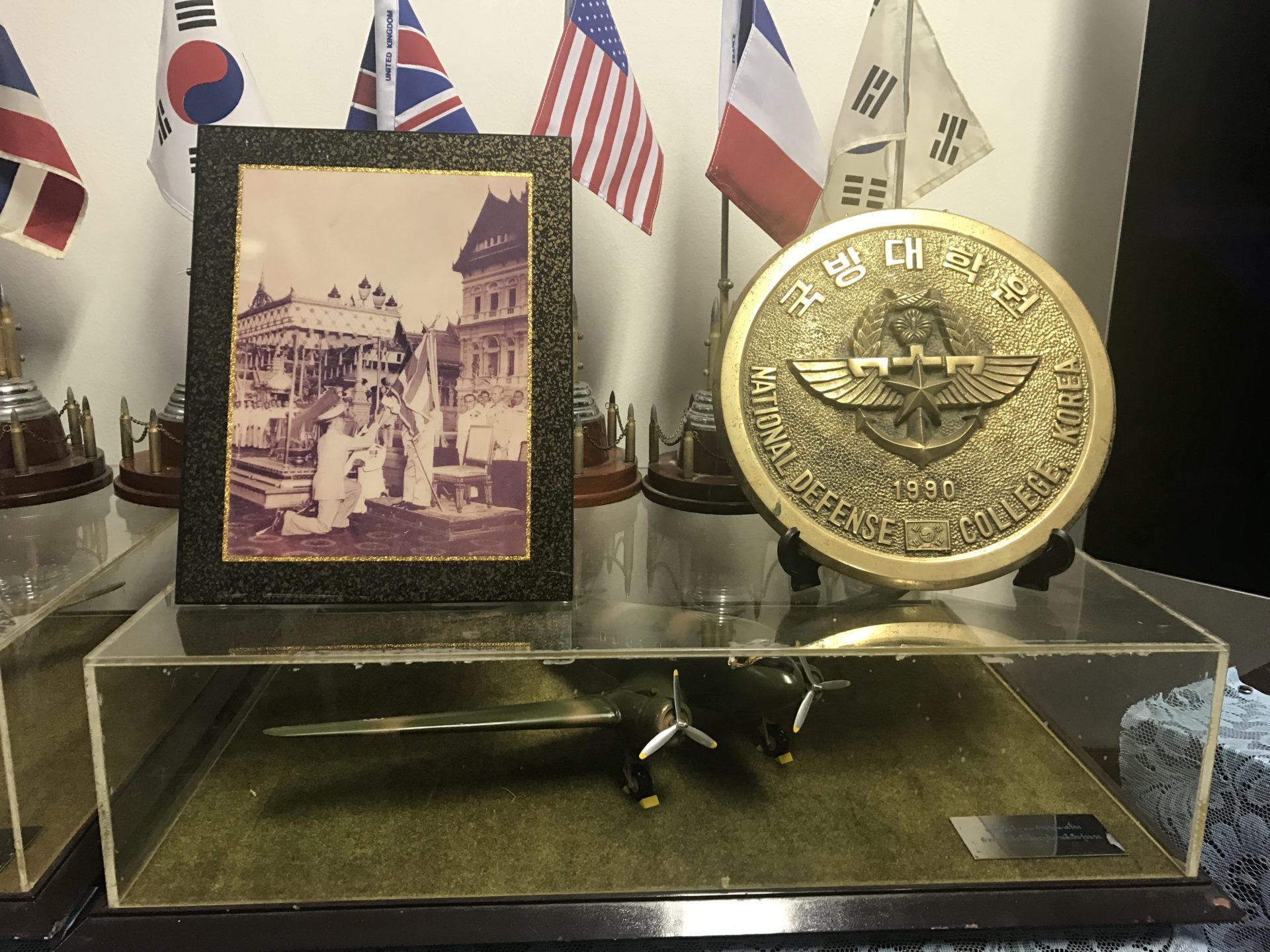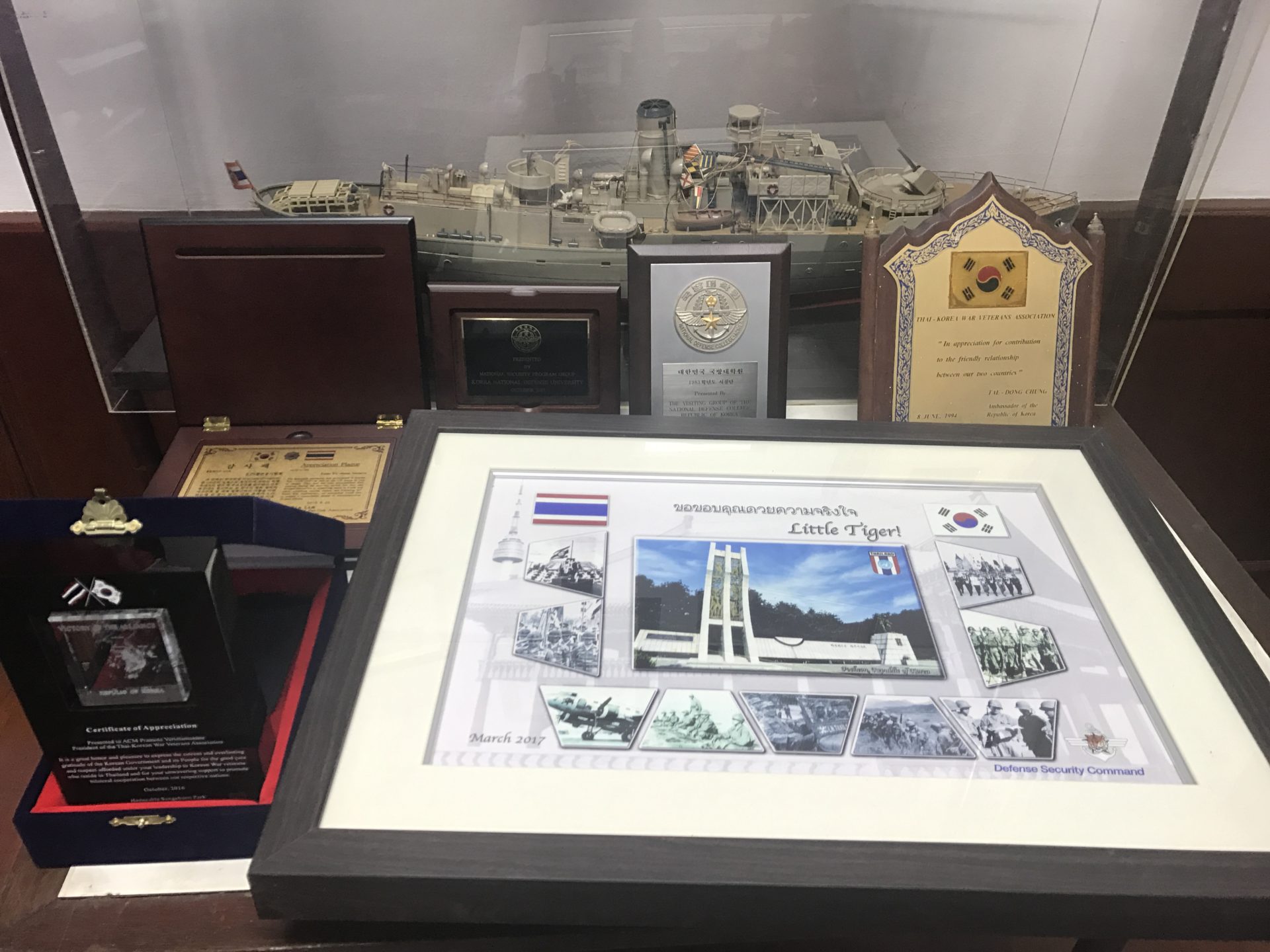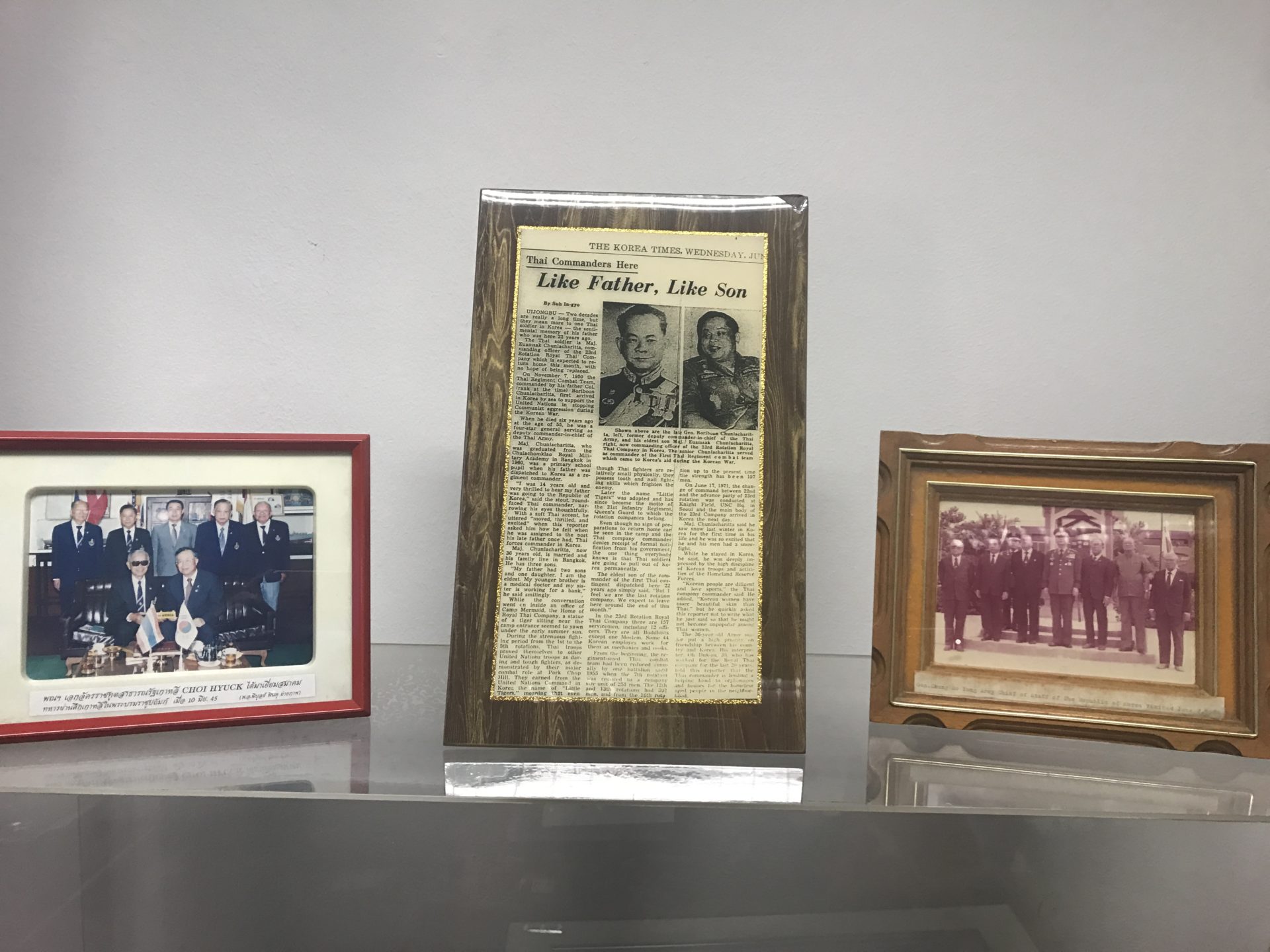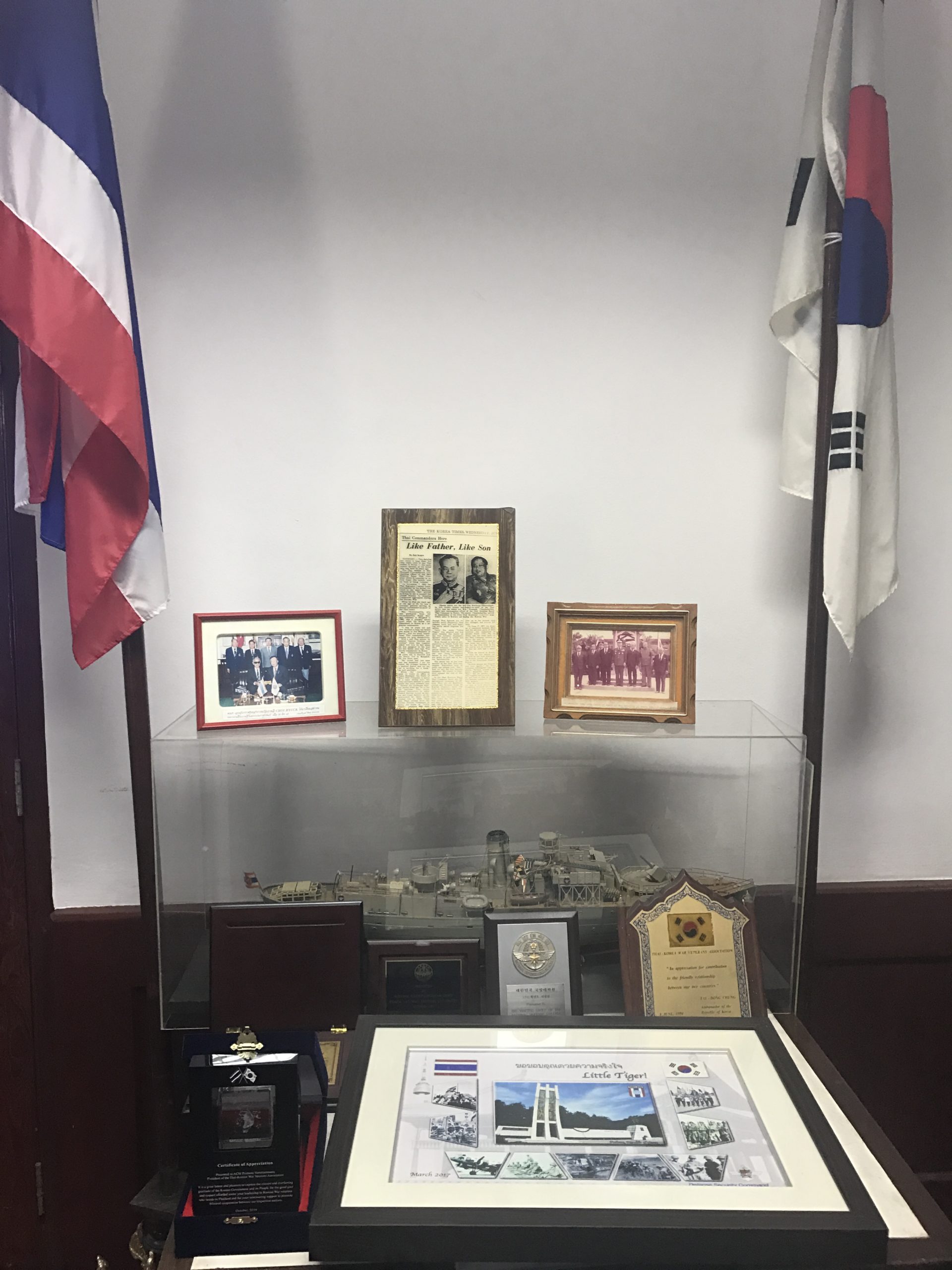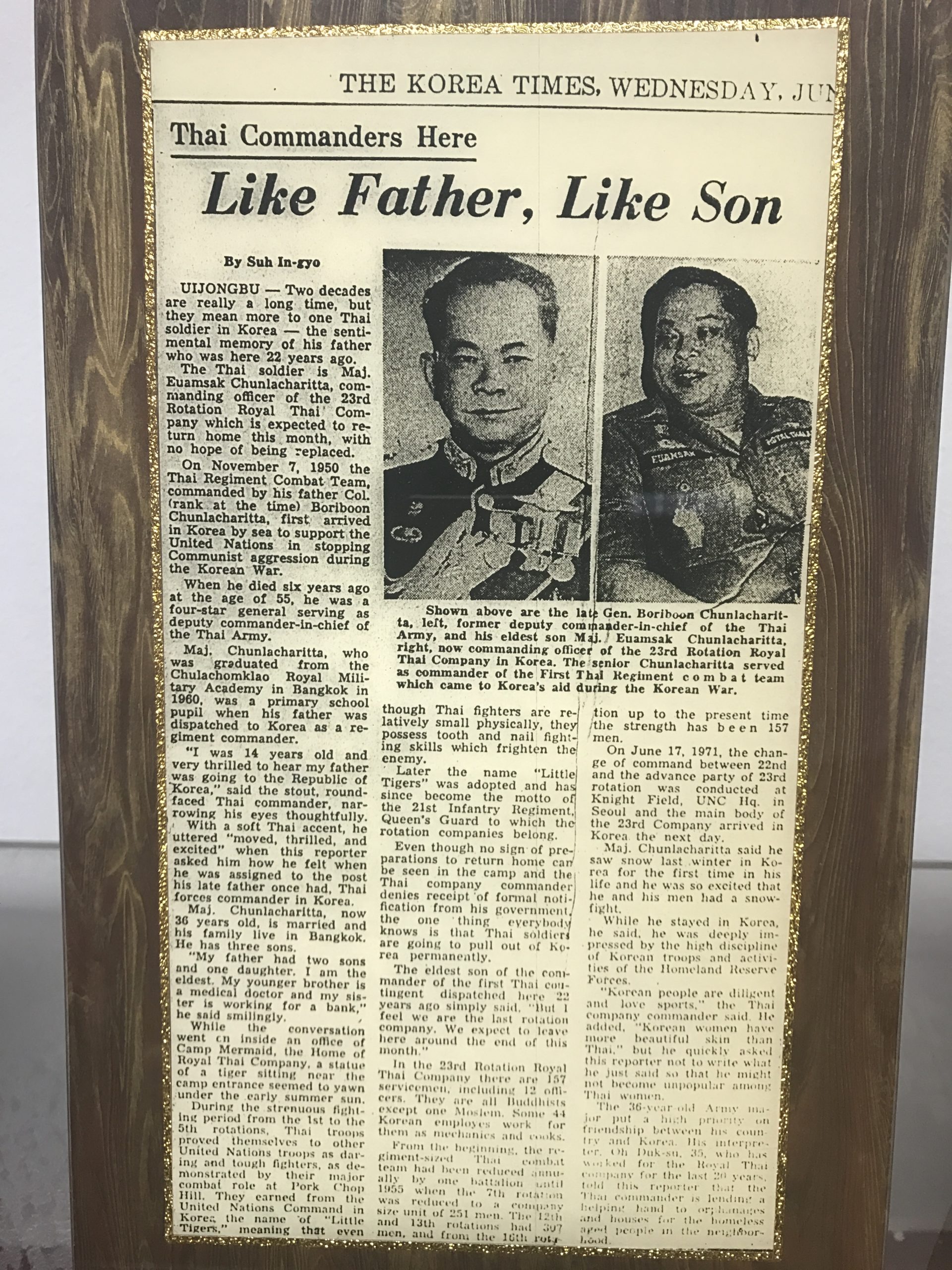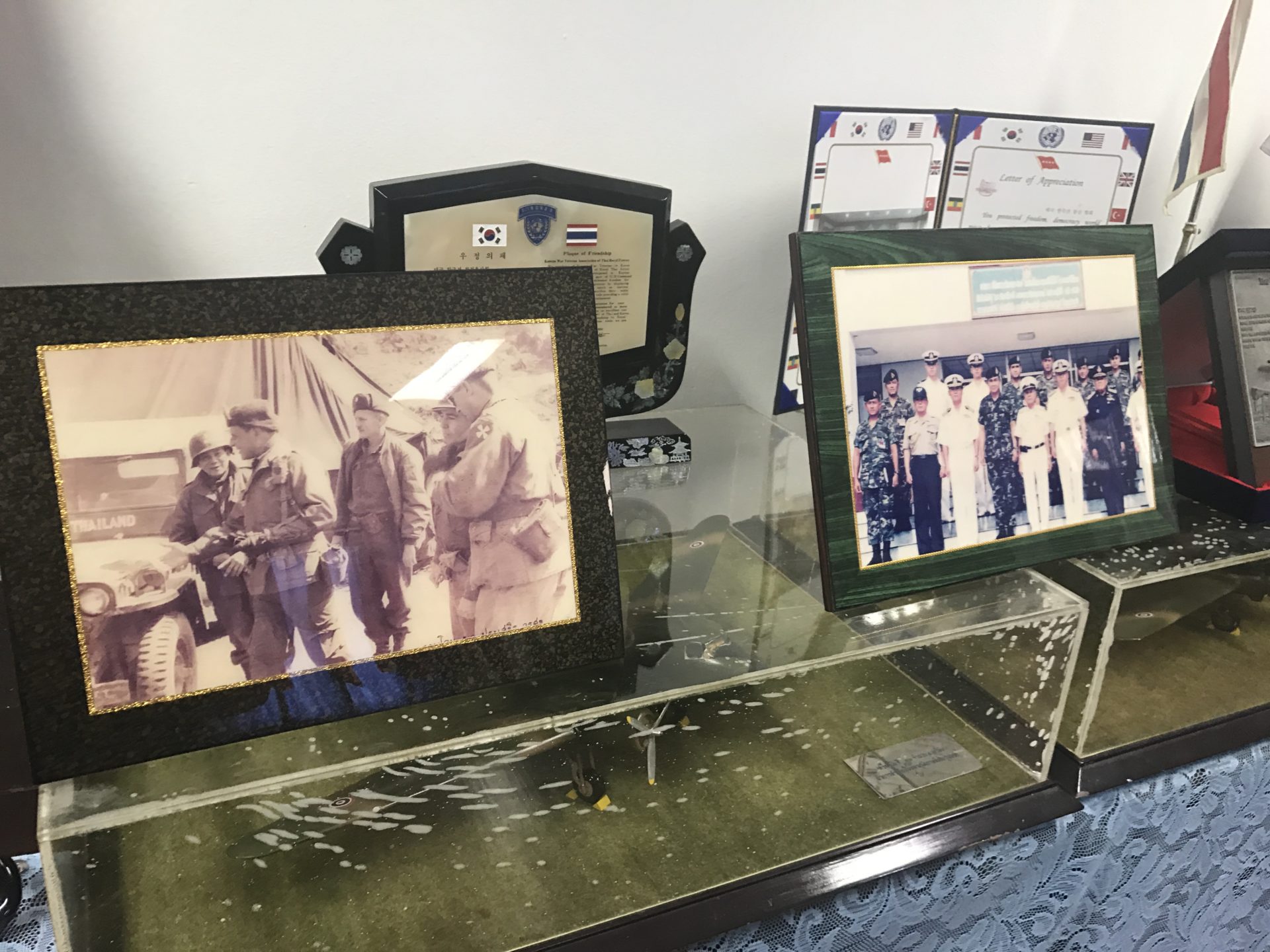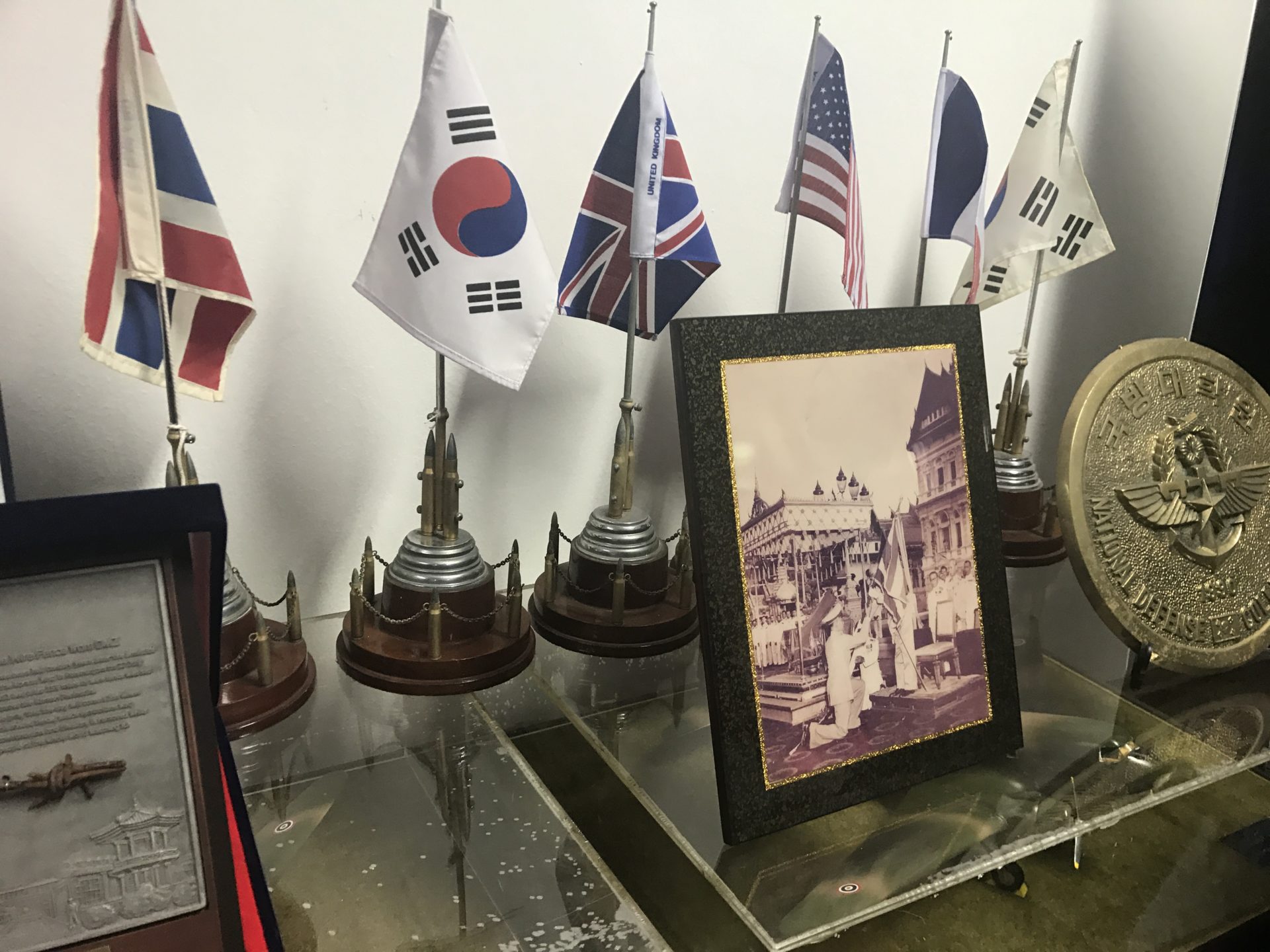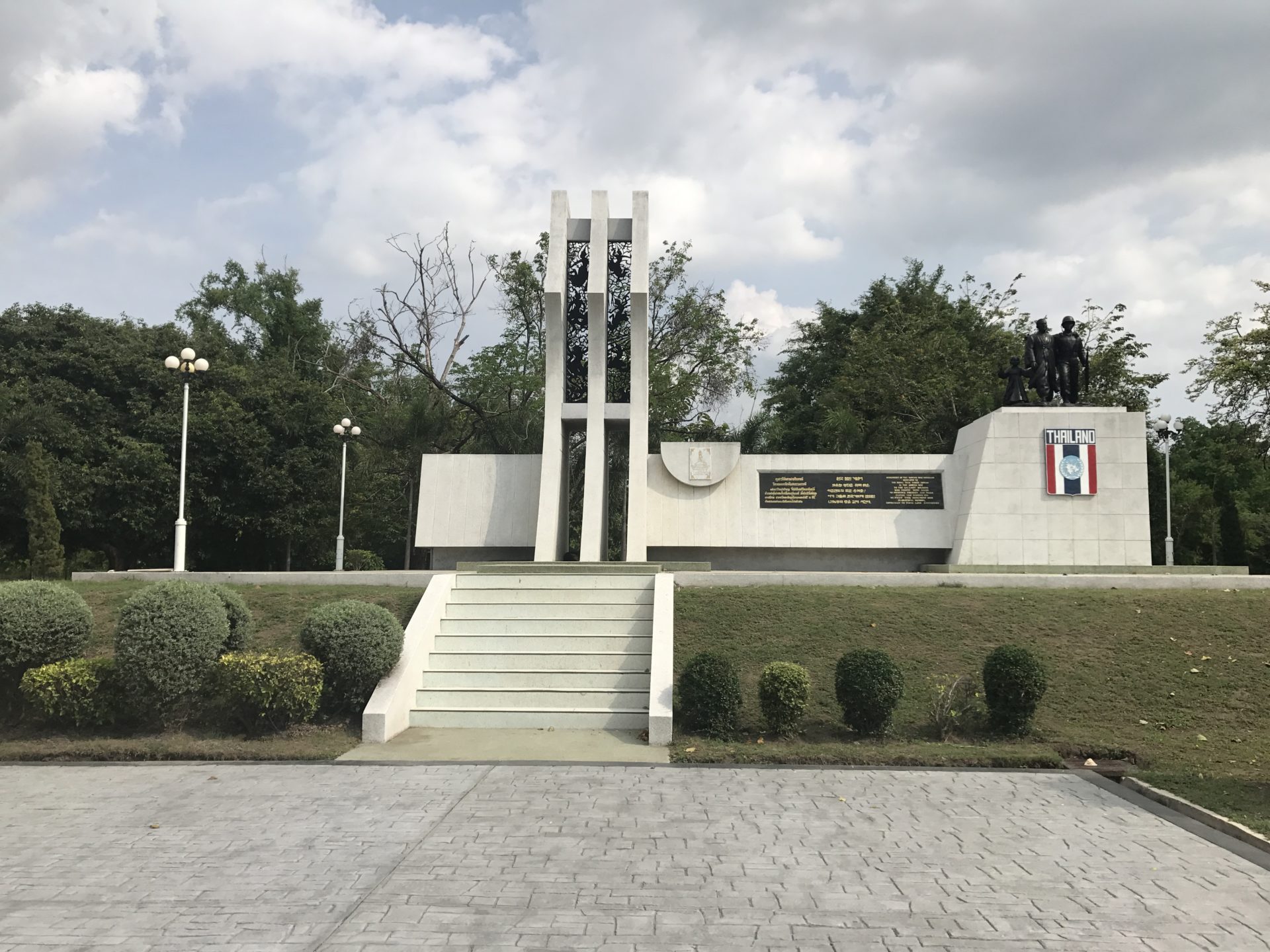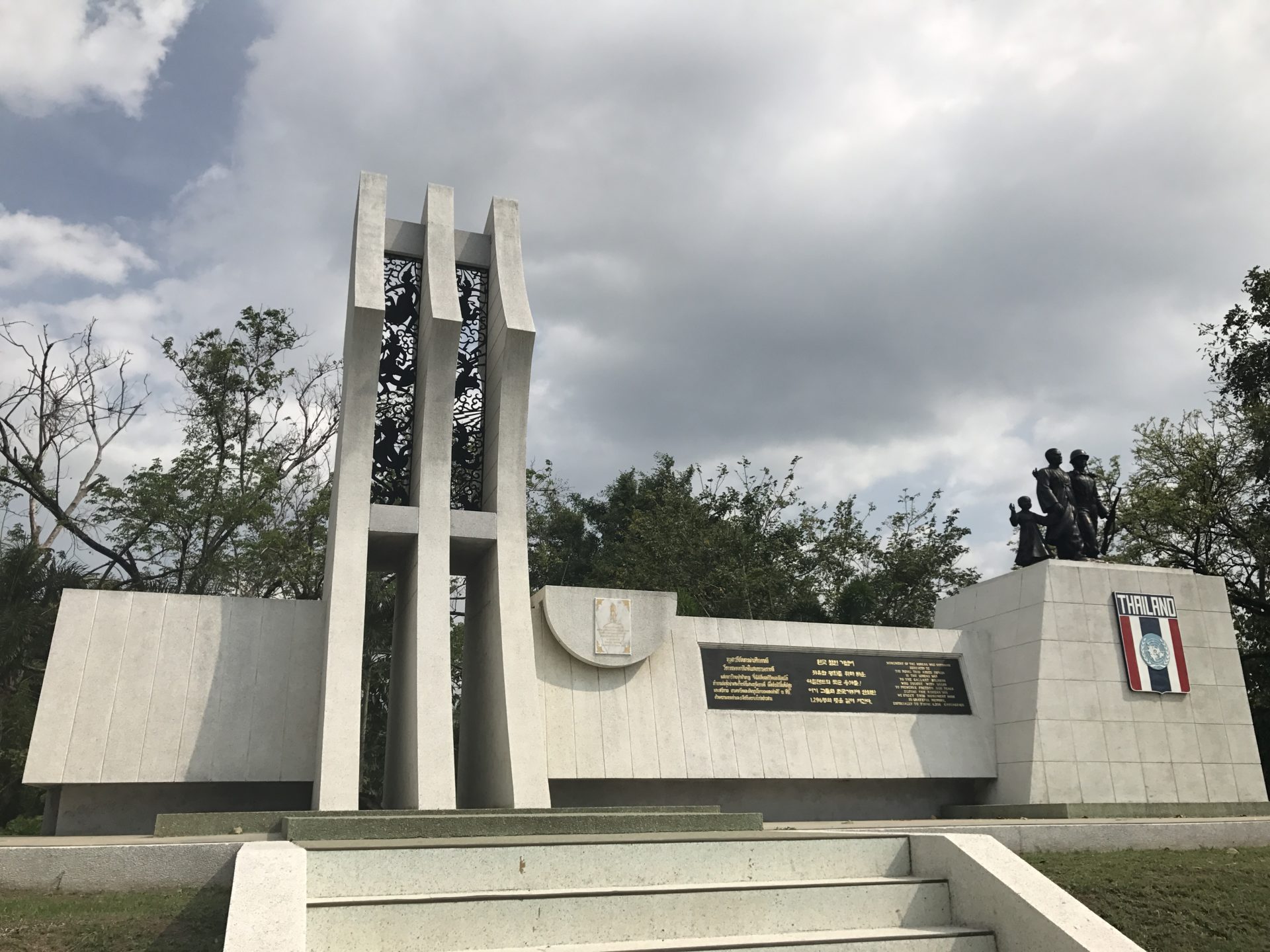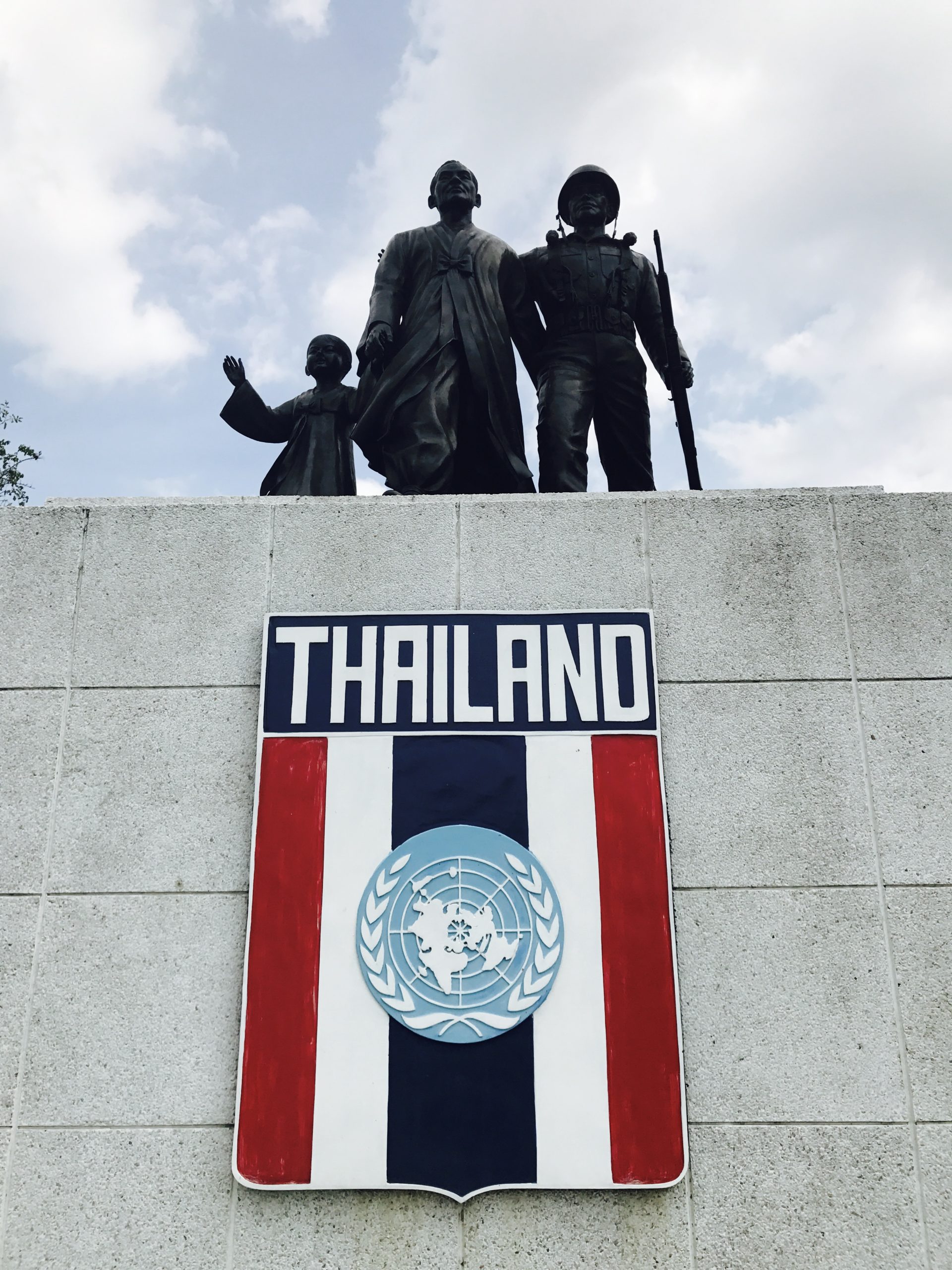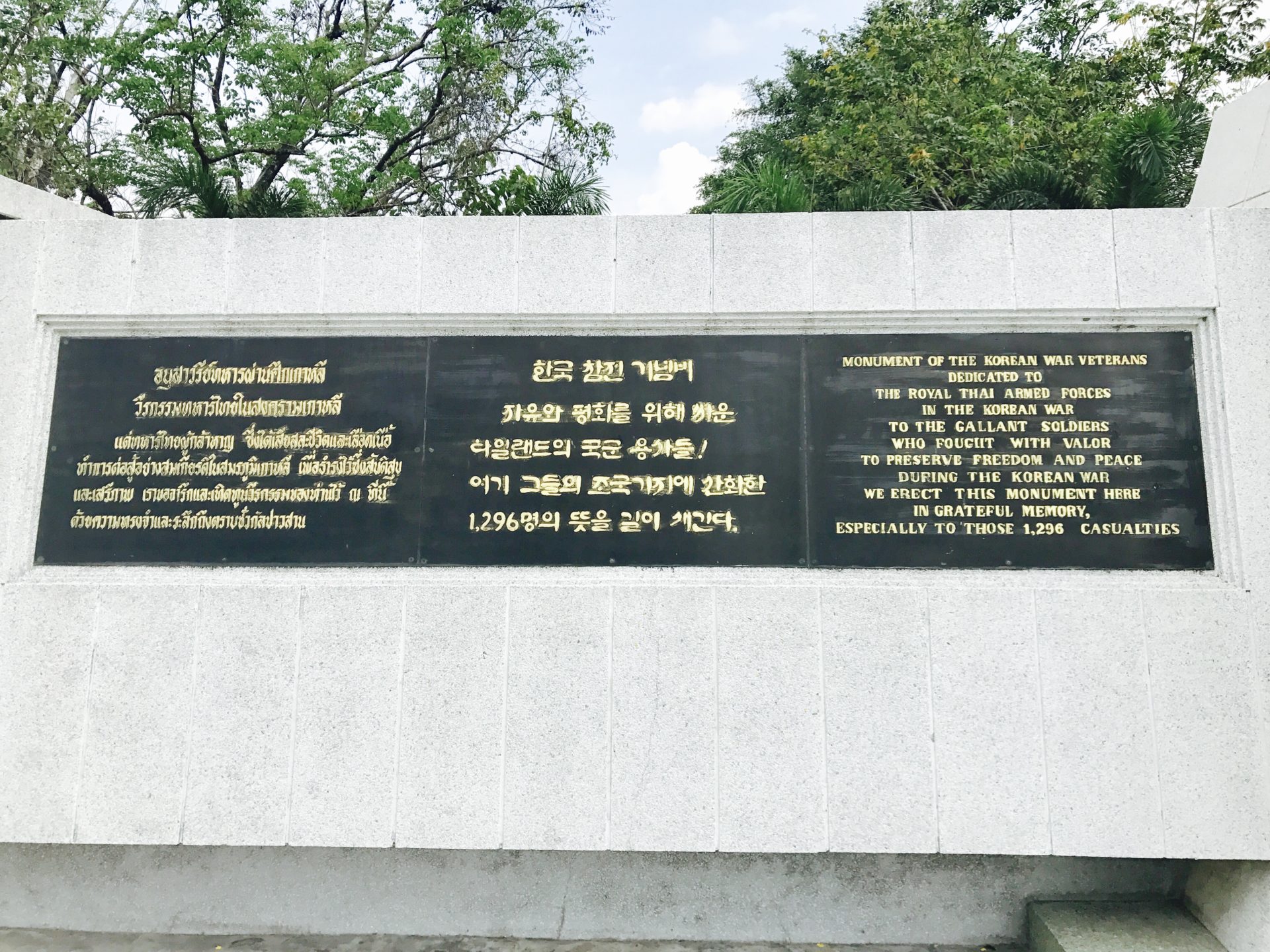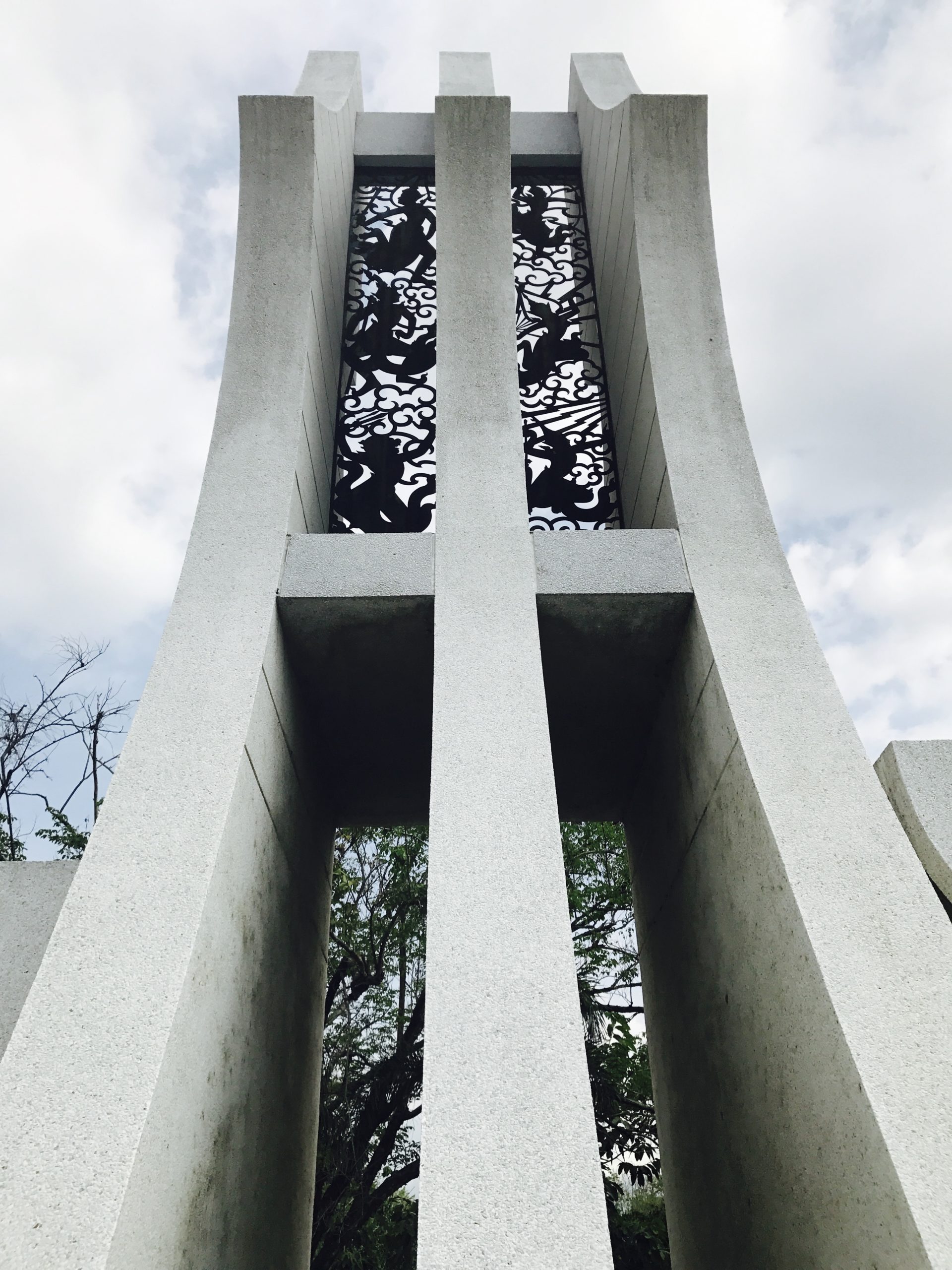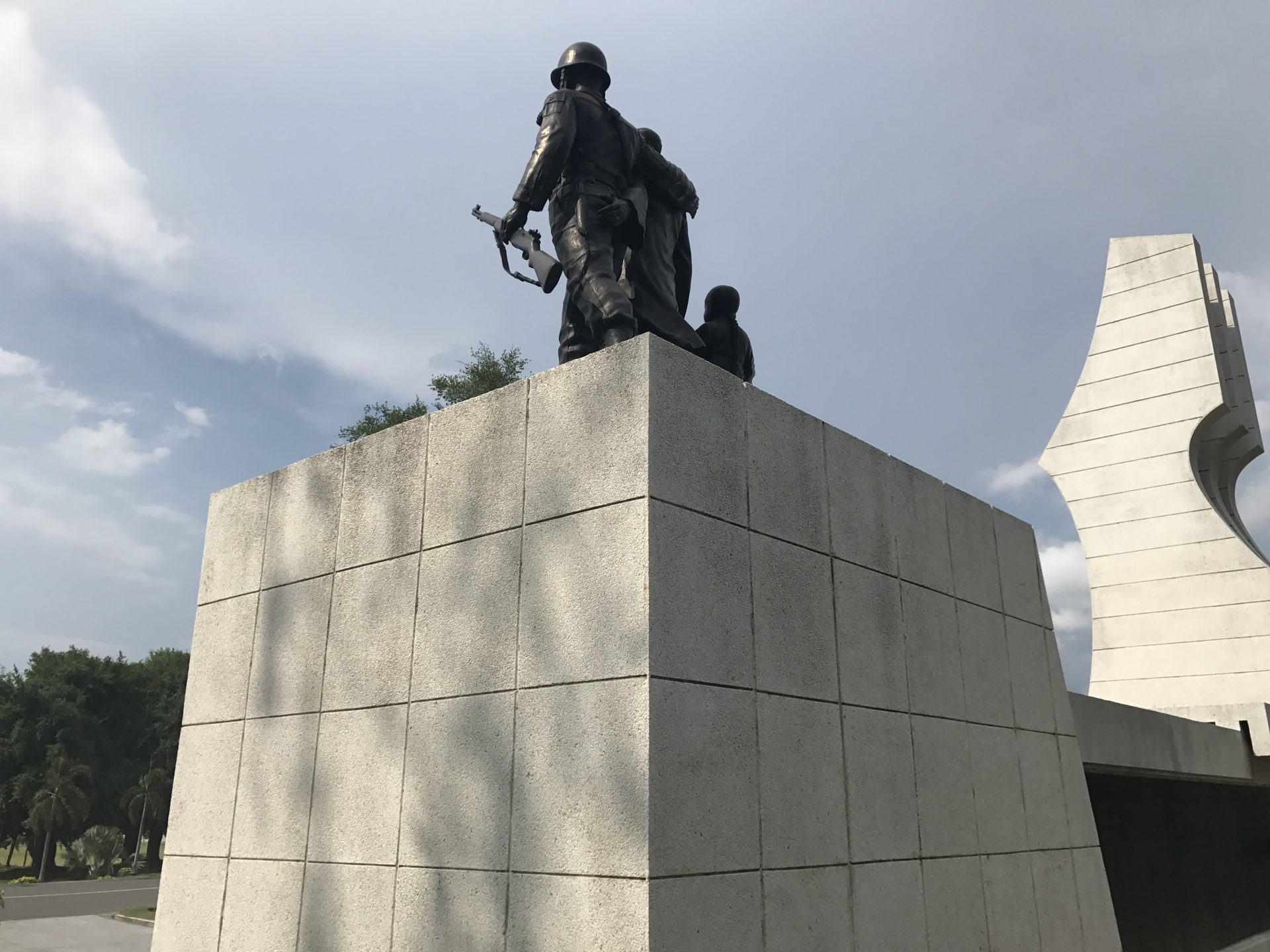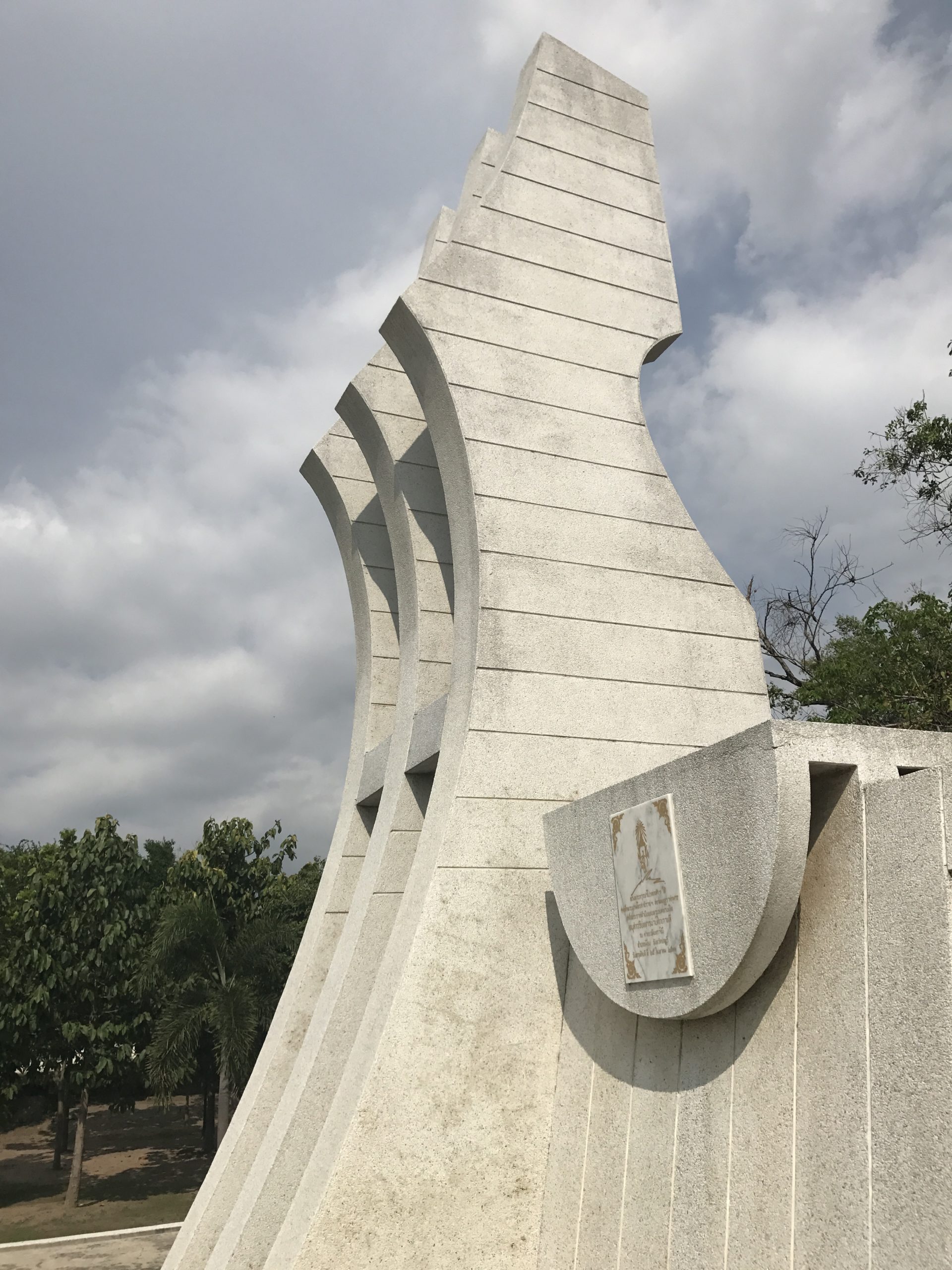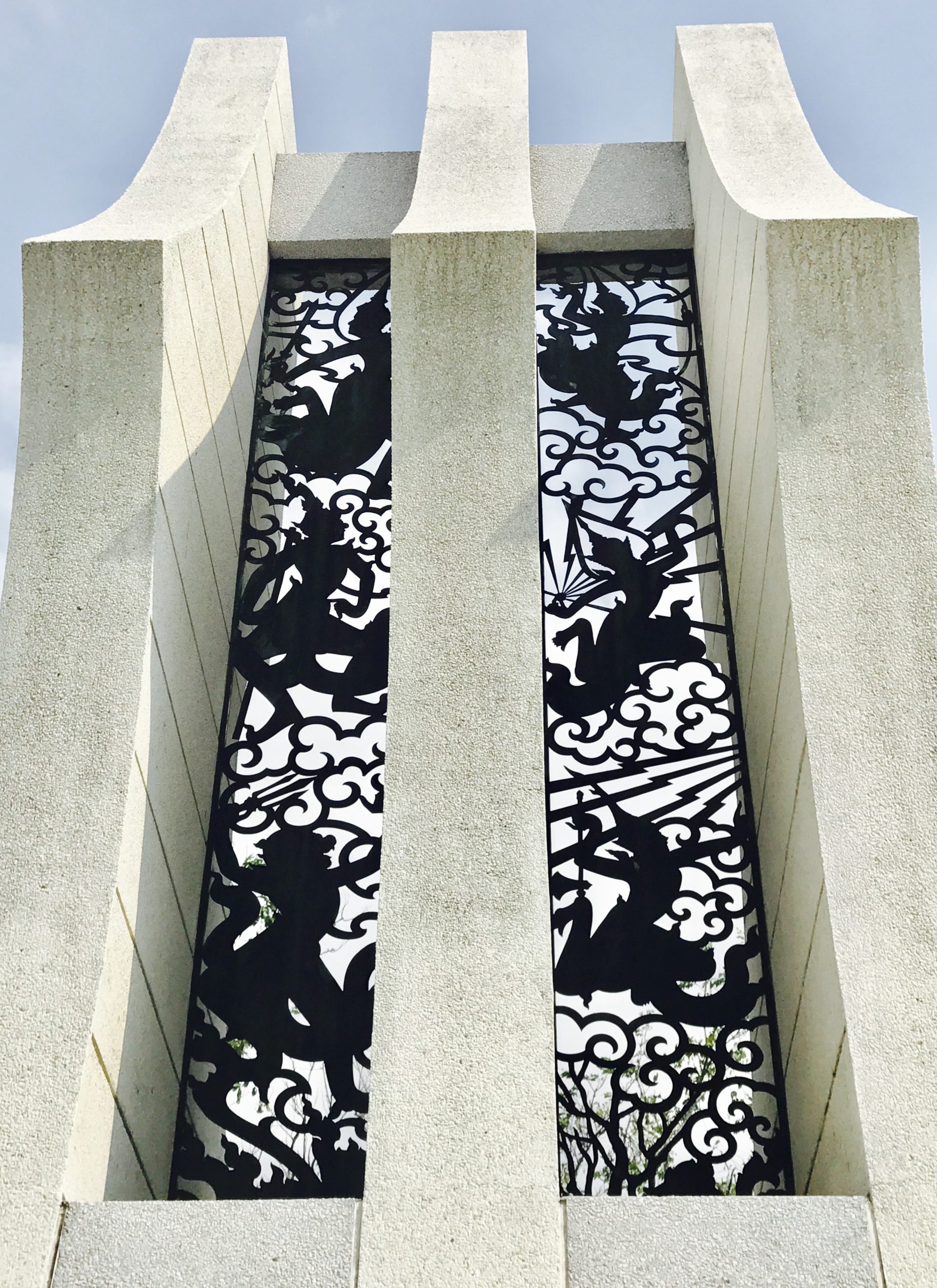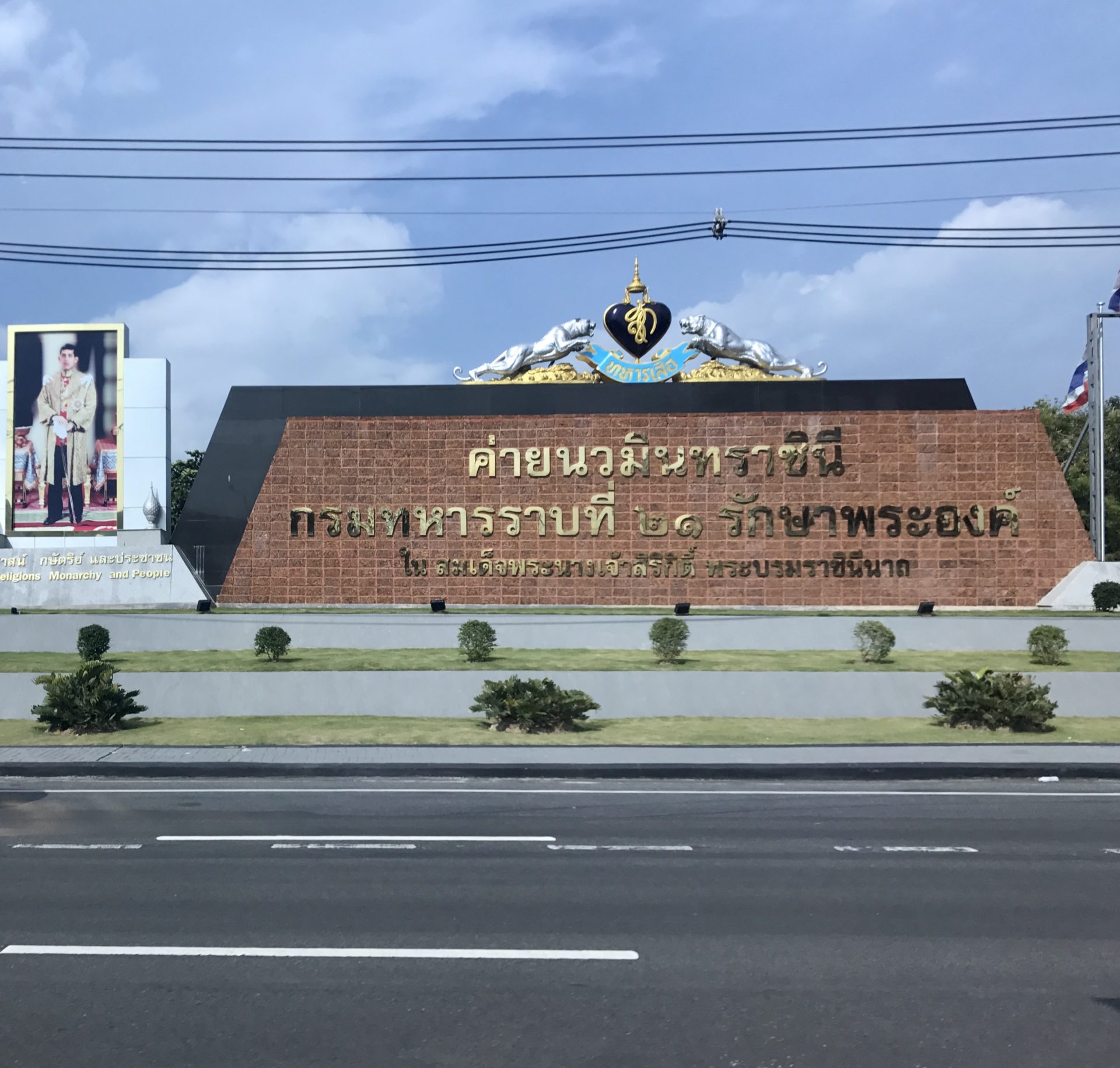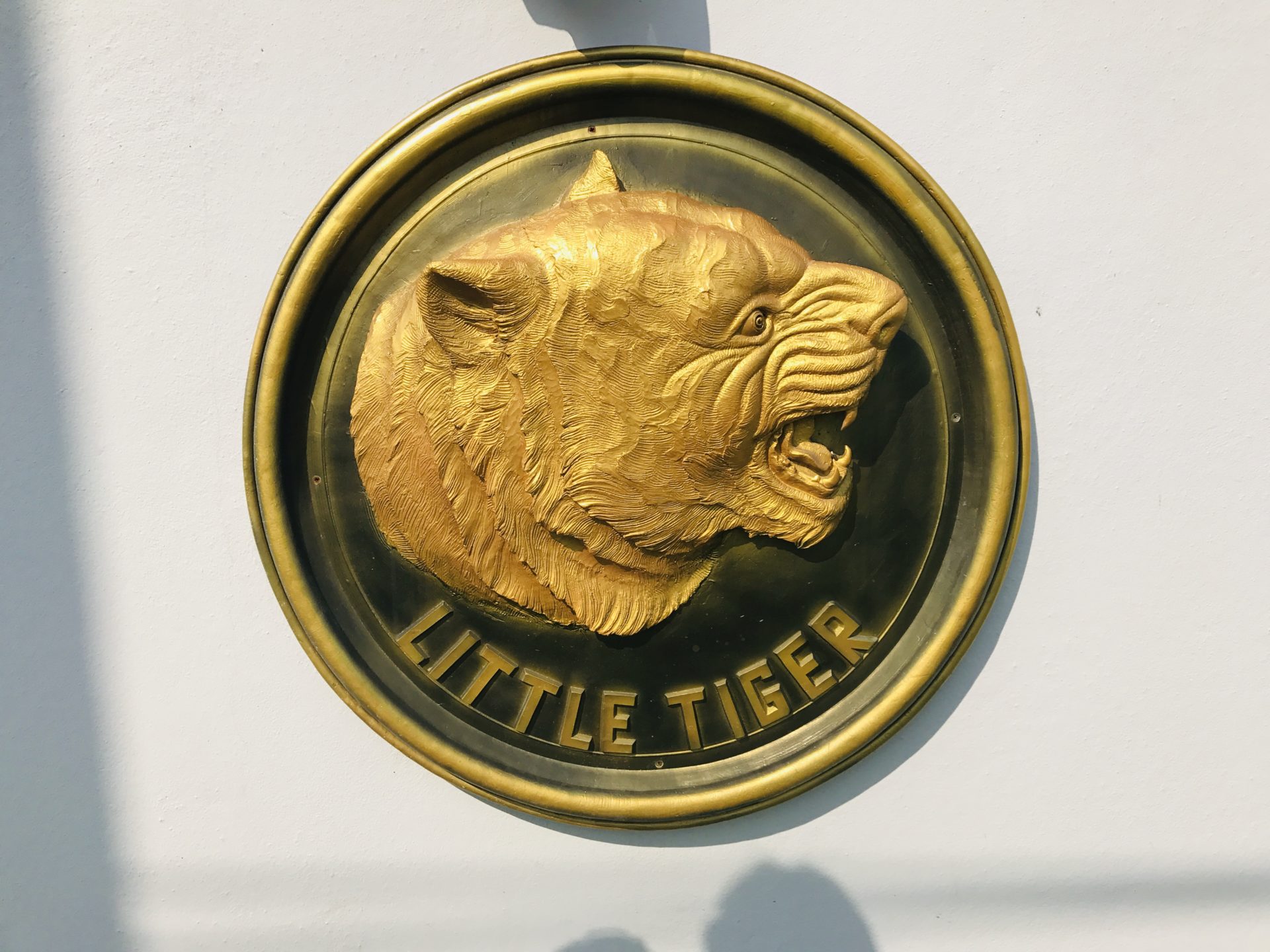Veteran Stories
>> [FOREIGN LANGUAGE]
>> He is very lost.
You went to Korea in 1950.
>> [FOREIGN LANGUAGE]
>> [INAUDIBLE]
>> [FOREIGN LANGUAGE]
>> He went there by ship.
>> [FOREIGN LANGUAGE]
>> Around 15 days, travel by ship ...
>> [FOREIGN LANGUAGE]
>> ... and arrive at Pusan ...
>> [FOREIGN LANGUAGE]
>> ... on November [INAUDIBLE] 1950.
>> [FOREIGN LANGUAGE]
>> I traveled by train.
>> [FOREIGN LANGUAGE]
>> Went to a city, [INAUDIBLE] ...
>> [FOREIGN LANGUAGE]
>> ... to train [INAUDIBLE].
>> [FOREIGN LANGUAGE]
>> After train for 7 days ...
>> [FOREIGN LANGUAGE]
>> I received an order to go to [INAUDIBLE].
>> [FOREIGN LANGUAGE]
>> To protect [INAUDIBLE] and preserve peace for [INAUDIBLE] few days.
>> [FOREIGN LANGUAGE]
>> And after that I got an order to move backward, and then pass the [INAUDIBLE] 38th parallel.
>> [FOREIGN LANGUAGE]
>> He came to [INAUDIBLE] city [INAUDIBLE].
>> [FOREIGN LANGUAGE]
>> [INAUDIBLE] has fighting on the opposite side.
>> [FOREIGN LANGUAGE]
>> He try to prevent those opposite site to cross over the 38th parallel.
>> [FOREIGN LANGUAGE]
>> And during the time I joined this fight, I was so honored and very proud to be able to help Korean people, and also even share food to those [INAUDIBLE].
>> [FOREIGN LANGUAGE]
>> All Thai armies practiced the same thing. We shared food to Korean people who we can [INAUDIBLE].
>> [FOREIGN LANGUAGE]
>> I practice my duty in Korea around 1 year ...
>> [FOREIGN LANGUAGE]
>> ... and then came back to Thailand.
>> [FOREIGN LANGUAGE]
>> What I am most proud ... was that I was one of Army. Soldier.
>> [FOREIGN LANGUAGE]
>> I found that I am Thai person who have a heart to help our neighbor country, our good friend country when they invaded by the [INAUDIBLE].
>> [FOREIGN LANGUAGE]
>> In Asia, we call Korea as our, what you call, like a good friend country.
>> [FOREIGN LANGUAGE]
>> And also Korean people have a very similar connector with Thai people.
>> Have you visited Korea after the war?
>> [FOREIGN LANGUAGE]
>> [FOREIGN LANGUAGE]
>> I went there only twice since after the war.
>> What did you think about it?
>> [FOREIGN LANGUAGE]
>> [FOREIGN LANGUAGE]
>> My last visit and when I compare with the time I went there during the war, so totally changed.
>> [FOREIGN LANGUAGE]
>> I was so much [INAUDIBLE] ...
>> [FOREIGN LANGUAGE]
>> ... economy and also socially and also transportation, everything so well developed.
>> [FOREIGN LANGUAGE]
>> I was so proud that I am part of the one who helped the country and they can see this country rise up and developed and [INAUDIBLE].
>> I hope that you're proud because Koreans all over the world are also very grateful.
>> [FOREIGN LANGUAGE]
>> [FOREIGN LANGUAGE]
>> You were in Korea for 1 year. Did you see Korean civilians?
>> [FOREIGN LANGUAGE]
>> [FOREIGN LANGUAGE]
>> When he went for the fight, he spent time around 15 days and then after that he came back to the place he live, around 7 day or something, and then he could be able to [INAUDIBLE] the civilian.
>> When they were not fighting what did they do?
>> [FOREIGN LANGUAGE]
>> [FOREIGN LANGUAGE]
>> No worry, they did not do anything.
They just stayed at home because of just try to escape ...
>> No, what did they, he do. He, not the civilians, not the Koreans.
>> [FOREIGN LANGUAGE]
>> The army.
>> [FOREIGN LANGUAGE]
>> [FOREIGN LANGUAGE]
>> They have an activities to do with the people, and also when they have food they share with the people.
>> Did they see other veterans from other countries?
>> [FOREIGN LANGUAGE]
>> [FOREIGN LANGUAGE]
>> They stay in different area so we not see other nations.
>> Not even Americans?
>> [FOREIGN LANGUAGE]
>> [FOREIGN LANGUAGE]
>> Yes, some [INAUDIBLE].
>> When he went to Korea, he met other veterans.
>> [FOREIGN LANGUAGE]
>> [FOREIGN LANGUAGE]
>> You mean when he went back to visit?
>> Yeah, revisit, revisit.
>> [FOREIGN LANGUAGE]
>> [FOREIGN LANGUAGE]
>> No, I don't see anyone.
>> [FOREIGN LANGUAGE]
>> [FOREIGN LANGUAGE]
>> [FOREIGN LANGUAGE]
>> [FOREIGN LANGUAGE]
>> He said that he went there because different nations or so were invited to Korea.
>> That's why. Yeah, that's why I was saying. It must have been very emotional.
>> [FOREIGN LANGUAGE]
>> [FOREIGN LANGUAGE]
>> Yeah, they have a conversation asking like, "When you went there and when you go back?"
>> Can you tell us, last comment, anything you want about, to the world, okay, to history, what you think Thailand's contribution in the Korean War? What's important to know about Thailand's contribution to the Korean War?
>> [FOREIGN LANGUAGE]
>> [FOREIGN LANGUAGE]
>> Number one in terms of heart, we really pour our heart to Korea. Second, we really want to help Korea to overcome the war.
>> [FOREIGN LANGUAGE]
>> And we want to end this war as soon as possible.
>> I hope that the war, because it still didn't end, will end in your lifetime ...
>> [FOREIGN LANGUAGE]
>> ... and that there will be peace, and one Korea.
>> [FOREIGN LANGUAGE]
>> [FOREIGN LANGUAGE]
>> [FOREIGN LANGUAGE].
>> [INAUDIBLE].
>> [FOREIGN LANGUAGE].
>> I went to Korea 1972.
>> [FOREIGN LANGUAGE].
>> Already kind of homeless. I didn't [INAUDIBLE].
>> Shh.
>> [FOREIGN LANGUAGE].
>> The fight only ended.
>> [FOREIGN LANGUAGE].
>> [INAUDIBLE].
>> [FOREIGN LANGUAGE].
>> However, soldiers still remained in Korea.
>> [FOREIGN LANGUAGE].
>> I didn't have much chance to meet with Korean people ...
>> [FOREIGN LANGUAGE].
>> ... because I was in Air Force.
>> [FOREIGN LANGUAGE].
>> My job was a pilot.
>> [FOREIGN LANGUAGE].
>> So my base in Japan.
>> Yeah.
>> [FOREIGN LANGUAGE].
>> We sent necessary things to Korea every day.
>> [FOREIGN LANGUAGE].
>> Sometimes I would stay at the Osan airport.
>> [FOREIGN LANGUAGE].
>> I'd fly to different provinces in Korea to ...
>> Weapons.
>> Logistic, [FOREIGN LANGUAGE].
>> The airport that we normally went to is in Gwangju.
>> [FOREIGN LANGUAGE].
[ Chatter ]
>> Jeju.
>> Oh, Jeju Island.
>> Busan.
>> Busan, yes.
>> [FOREIGN LANGUAGE].
>> Our work received support from the other missions.
>> When you were there, I know there were some conflicts between North and South Korea after the war.
>> [FOREIGN LANGUAGE].
>> [FOREIGN LANGUAGE].
>> [INAUDIBLE] during my time there was a fight in between security armed.
>> [FOREIGN LANGUAGE].
>> [INAUDIBLE].
>> How many people like him went to Korea after the war?
>> [FOREIGN LANGUAGE].
>> [FOREIGN LANGUAGE].
>> He brought, because they brought [INAUDIBLE], the students went to Korea to receive.
>> How many people served?
>> [FOREIGN LANGUAGE].
>> One year we sent about 20 Air Force personnel, [FOREIGN LANGUAGE].
>> For how many years?
>> Twenty, more than 20. About 20 years, 20.
>> [FOREIGN LANGUAGE].
>> [FOREIGN LANGUAGE].
>> More than 20 years.
>> So after 1953 ...
>> Yeah.
>> ... every year, about 20 Air Force until about 1973?
>> Yeah. Yes, yes. 1974, about that.
>> 1974.
>> Mm-hmm.
>> Nobody knows this.
>> No.
>> [FOREIGN LANGUAGE].
>> No.
>> I'm very happy that I'm learning this.
>> Mm-hmm. [FOREIGN LANGUAGE].
>> You were there for 1 year?
>> One year.
>> Wow, wow. Everyone was a volunteer?
>> [FOREIGN LANGUAGE].
>> [FOREIGN LANGUAGE].
>> Yes.
>> But you were parted of the armed military?
>> [FOREIGN LANGUAGE].
>> Air Force.
>> Air Force, but you volunteered to go to Korea?
>> Right.
>> Okay.
>> Thank you very much.
>> [FOREIGN LANGUAGE].
>> [FOREIGN LANGUAGE].
>> I went to Korean War [INAUDIBLE] 1972.
>> [FOREIGN LANGUAGE].
>> [INAUDIBLE]. Only 157 people.
>> [FOREIGN LANGUAGE].
>> We stayed there for 14 months.
>> [FOREIGN LANGUAGE].
>> The reason we still continue to send our soldiers even just the war already ended.
>> [FOREIGN LANGUAGE].
>> We are still ...
>> [FOREIGN LANGUAGE].
>> ... Because in the current time still ...
>> Command.
>> Command. [FOREIGN LANGUAGE] command.
>> ... They call United Nations command is to stay in Korea.
>> [FOREIGN LANGUAGE].
>> And still in [INAUDIBLE] city.
>> [FOREIGN LANGUAGE].
>> On this ... what to call ...
>> United Nation command.
>> This United Nation command still remained there because there was policy from the very beginning that they have this kind of policy to stay there this year. That's why they're still over there.
>> [FOREIGN LANGUAGE].
>> I think about 8 years, eight countries.
>> [FOREIGN LANGUAGE].
>> Eight countries there at that time.
>> [FOREIGN LANGUAGE].
>> [INAUDIBLE].
>> [FOREIGN LANGUAGE].
>> Korea.
>> [FOREIGN LANGUAGE].
>> England.
>> Switzerland.
>> Switzerland.
>> Australia.
>> Australia.
>> [FOREIGN LANGUAGE].
>> [INAUDIBLE].
>> [FOREIGN LANGUAGE] United Nation.
>> Even nowadays, still, we have a soldier stay in Korea in this United Nation command [INAUDIBLE].
>> Even now?
>> Yes.
>> Oh.
>> [FOREIGN LANGUAGE].
>> We need to stay every year like a rotation sending, getting there.
>> [FOREIGN LANGUAGE].
>> Because it's so that we can, what do you call that, complete the kind of policy. You have to send in accordance with the policy of the United Nations.
>> Wow, even now.
>> Now.
>> Yes, even until now.
>> [FOREIGN LANGUAGE].
>> Now is no longer as a volunteers, but you select and send.
>> Wow.
>> [FOREIGN LANGUAGE].
>> No more volunteers because we need only 15, but sometimes they want to apply for 200. It's going to be a problem.
>> So when you went to Korea, what did they do during the rotation?
>> [FOREIGN LANGUAGE].
>> [FOREIGN LANGUAGE].
>> [FOREIGN LANGUAGE].
>> [FOREIGN LANGUAGE].
>> They just need to spend time for training.
>> [FOREIGN LANGUAGE].
>> They need to [INAUDIBLE] even though there is no war but like a soldier, you still need to practice training and discipline.
>> [FOREIGN LANGUAGE].
>> And also civic action.
>> [FOREIGN LANGUAGE].
>> A civil action is like helping the civilian ...
>> [FOREIGN LANGUAGE].
>> ... especially in the area nearby the base, the [INAUDIBLE].
>> Where is the Thai army base located in Korea?
>> [FOREIGN LANGUAGE].
>> [FOREIGN LANGUAGE].
>> [FOREIGN LANGUAGE].
>> But during my time, I came to [INAUDIBLE].
>> [FOREIGN LANGUAGE].
>> Seven kilometers north from Seoul, 7 kilometers north.
>> [FOREIGN LANGUAGE].
>> When we don't have war, we will practice to see action.
>> [FOREIGN LANGUAGE].
>> [FOREIGN LANGUAGE].
>> [FOREIGN LANGUAGE].
>> Yeah, like doing service projects, serving the people.
>> [FOREIGN LANGUAGE].
>> During my time, I'm taking care of the orphan.
>> [FOREIGN LANGUAGE].
>> Also [INAUDIBLE].
>> [FOREIGN LANGUAGE].
>> We do arrange the doctor, medical director, to take care of their health.
>> [FOREIGN LANGUAGE].
>> And share food to the elderly women and also orphan house, orphanage house.
>> So how many in total from 1950 to 1953 during the war, how many time went and how many died?
>> [FOREIGN LANGUAGE].
>> [FOREIGN LANGUAGE].
>> Do you remember? You asked me.
>> [FOREIGN LANGUAGE].
>> [FOREIGN LANGUAGE].
>> [FOREIGN LANGUAGE].
>> During his time. [FOREIGN LANGUAGE]. During this time, around 6,000.
[ Chatter ]
He said in total, 13,000.
>> Thirteen thousand?
>> Yeah, 13,000.
>> During the war, 1950 to 1953.
>> [FOREIGN LANGUAGE].
>> [FOREIGN LANGUAGE].
>> He said during the 23 years, around 13,000.
>> Oh, 23 years all together.
>> Yes, 23 years.
>> All together.
>> How many died?
>> [FOREIGN LANGUAGE].
>> [FOREIGN LANGUAGE].
>> Three hundred eighty.
>> Three hundred eighty died?
>> Yes.
>> [FOREIGN LANGUAGE].
>> Because at the end of the war, because of the, what do you call that ...
>> Ceasefire.
>> They no more fight this time.
>> But 380 is a big number.
>> No, no, no, no, no, no, no, no, it's not, 136.
>> Oh, died.
[ Chatter ]
One hundred and thirty-six, that's still a big number.
>> [FOREIGN LANGUAGE].
>> Because they are babies, 18, 20.
>> [FOREIGN LANGUAGE].
>> Babies.
>> [FOREIGN LANGUAGE].
>> [FOREIGN LANGUAGE].
>> He said a soldier died, not so many because really good in fighting.
>> Yes. Wow. Okay. Now association, let's talk about association. You're the president of the association, right?
>> [FOREIGN LANGUAGE].
>> How many members are in the association? How many like him and how many like him?
>> [FOREIGN LANGUAGE].
>> [FOREIGN LANGUAGE].
>> First of all, in charge as leader of his association. All of them came from the veterans.
>> [FOREIGN LANGUAGE].
>> Not only [INAUDIBLE] Air Force. We have also Navy.
>> [FOREIGN LANGUAGE].
>> Because in the very beginning, we sailed a ship [INAUDIBLE] to join this war [INAUDIBLE].
>> [FOREIGN LANGUAGE].
>> Also a battleship royal to the navy [INAUDIBLE] ships.
>> [FOREIGN LANGUAGE].
>> Almost at the end of the war we already brought it back ...
>> [FOREIGN LANGUAGE].
>> ... just when the Air Force [INAUDIBLE].
>> Air Force.
>> In the association, how many veterans are remaining right now?
>> [FOREIGN LANGUAGE].
>> [FOREIGN LANGUAGE].
>> [FOREIGN LANGUAGE].
>> [FOREIGN LANGUAGE].
[ Chatter ]
>> Most are still alive. They are members of the association.
[ Chatter ]
>> Around 3,000.
>> Three thousand.
>> Members.
>> Oh.
>> But does that include combat veterans?
>> Combat veterans?
>> Combat is during the war.
>> [FOREIGN LANGUAGE].
[ Chatter ]
>> [FOREIGN LANGUAGE].
>> [FOREIGN LANGUAGE].
>> [FOREIGN LANGUAGE].
[ Chatter ]
>> [FOREIGN LANGUAGE].
>> [FOREIGN LANGUAGE].
>> [FOREIGN LANGUAGE].
>> [FOREIGN LANGUAGE].
>> [FOREIGN LANGUAGE].
>> [FOREIGN LANGUAGE].
>> [FOREIGN LANGUAGE].
[ Chatter ]
>> [FOREIGN LANGUAGE].
>> Royal Army.
>> [FOREIGN LANGUAGE].
>> [FOREIGN LANGUAGE].
>> [FOREIGN LANGUAGE].
[ Chatter ]
>> What kind of activities does the association do? For example, meet significant dates like October 22nd, for the descendants scholarship?
>> [FOREIGN LANGUAGE].
>> [FOREIGN LANGUAGE].
>> This association open every day except holiday and ...
>> [FOREIGN LANGUAGE].
>> ... we still remain [INAUDIBLE] of the veterans every day ...
>> [FOREIGN LANGUAGE].
>> ... because they have so many different things [INAUDIBLE] something because of the difficulties.
>> [FOREIGN LANGUAGE].
>> They want their children to receive scholarship.
>> [FOREIGN LANGUAGE].
>> We help with these kind of things. Every day, people come.
>> [FOREIGN LANGUAGE].
>> The money that we can give scholarship to the children of the veterans, we can fund anyways.
>> [FOREIGN LANGUAGE].
>> We got them from the veterans associations and also from Ministry of Defense.
>> [FOREIGN LANGUAGE].
>> Also some companies from [INAUDIBLE].
>> [FOREIGN LANGUAGE].
>> When they organize for charity events, they donate it to us.
>> [FOREIGN LANGUAGE].
>> And also we try to fund [INAUDIBLE] so that we can also give scholarship from our ... We can [INAUDIBLE] from, what do you call, lotteries, also.
>> [FOREIGN LANGUAGE].
>> Actually not my own [INAUDIBLE].
>> [FOREIGN LANGUAGE].
>> Thank you very much for the important work that you do.
>> [FOREIGN LANGUAGE].
>> [FOREIGN LANGUAGE].
>> There are four goals that we have.
>> [FOREIGN LANGUAGE].
>> They all can accomplish as soon as possible.
>> Yes. This is my fourth one, so I think it is ...
>> [FOREIGN LANGUAGE].
>> [FOREIGN LANGUAGE].
>> I'm so glad. We want to hear your success. We wait for that.
>> [FOREIGN LANGUAGE]
>> We have those Korean Veterans.
>> [FOREIGN LANGUAGE]
>> [FOREIGN LANGUAGE]
>> [FOREIGN LANGUAGE]
>> [FOREIGN LANGUAGE]
>> [FOREIGN LANGUAGE]
>> Ah.
>> [FOREIGN LANGUAGE]
>> Mm-hmm.
>> [FOREIGN LANGUAGE]
>> Mm.
>> [FOREIGN LANGUAGE]
>> Mm.
>> [FOREIGN LANGUAGE]
>> Mm. Mm-mm.
>> [FOREIGN LANGUAGE]
>> Mm.
>> [FOREIGN LANGUAGE]
>> Mm.
>> [FOREIGN LANGUAGE]
>> [FOREIGN LANGUAGE]
>> [FOREIGN LANGUAGE]
>> Mm.
>> [FOREIGN LANGUAGE]
>> Mm.
>> [FOREIGN LANGUAGE]
>> Mm.
>> [FOREIGN LANGUAGE]
>> Mm. Mm.
>> [FOREIGN LANGUAGE]
>> Mm.
>> [FOREIGN LANGUAGE]
>> Mm.
>> [FOREIGN LANGUAGE]
>> Mm-hmm.
>> [FOREIGN LANGUAGE]
>> Mm.
>> [FOREIGN LANGUAGE]
>> Mm.
>> [FOREIGN LANGUAGE]
>> Mm.
>> [FOREIGN LANGUAGE]
>> Mm.
>> [FOREIGN LANGUAGE]
>> Mm.
>> [FOREIGN LANGUAGE]
>> Mm.
>> [FOREIGN LANGUAGE]
>> Mm.
>> [FOREIGN LANGUAGE]
>> Mm.
>> [FOREIGN LANGUAGE]
>> Mm.
>> [FOREIGN LANGUAGE]
>> We are ...
>> [FOREIGN LANGUAGE]
>> [FOREIGN LANGUAGE]
>> You asked him one question and forgot to answer one.
>> [FOREIGN LANGUAGE]
>> What kind of commemoration date or ...
>> [FOREIGN LANGUAGE]
>> [FOREIGN LANGUAGE]
>> [FOREIGN LANGUAGE]
>> The 22nd of October ...
>> [FOREIGN LANGUAGE]
>> ... the commemoration day of the Korean War veterans ...
>> [FOREIGN LANGUAGE]
>> ... we will have a ceremony ...
>> [FOREIGN LANGUAGE] ceremony.
>> ... ceremony.
>> [FOREIGN LANGUAGE]
>> [FOREIGN LANGUAGE]
>> [FOREIGN LANGUAGE] the 21st Regiment Queen [FOREIGN LANGUAGE].
>> [FOREIGN LANGUAGE]
>> [FOREIGN LANGUAGE]
>> [FOREIGN LANGUAGE]
>> [FOREIGN LANGUAGE]
>> And 87 ...
>> [FOREIGN LANGUAGE] king ...
>> The king who you all ...
>> [FOREIGN LANGUAGE]
>> [FOREIGN LANGUAGE]
>> [FOREIGN LANGUAGE] king ...
>> [FOREIGN LANGUAGE]
>> [FOREIGN LANGUAGE]
>> [FOREIGN LANGUAGE]
>> [FOREIGN LANGUAGE] the king, you said, the personal chief and [FOREIGN LANGUAGE] the ceremony.
>> [FOREIGN LANGUAGE]
>> Ask him [FOREIGN LANGUAGE] I know the answer you told me, but I want him to say it. What is the significance of 10, 22nd?
>> [FOREIGN LANGUAGE]
>> [FOREIGN LANGUAGE]
>> [FOREIGN LANGUAGE]
>> [FOREIGN LANGUAGE]
>> [FOREIGN LANGUAGE]
>> [FOREIGN LANGUAGE]
>> Mm.
>> [FOREIGN LANGUAGE]
>> It was the very first day Thailand sent army to the ship and into Korea.
>> Mm. Mm.
>> [FOREIGN LANGUAGE]
>> [FOREIGN LANGUAGE]
>> [FOREIGN LANGUAGE]
>> [FOREIGN LANGUAGE]
>> [FOREIGN LANGUAGE]
>> [FOREIGN LANGUAGE] Busan.
>> [FOREIGN LANGUAGE]
>> Mm.
>> [FOREIGN LANGUAGE]
>> Mm.
>> [FOREIGN LANGUAGE] Busan. Busan [FOREIGN LANGUAGE]
>> Mm.
>> [FOREIGN LANGUAGE]
>> Mm.
>> [FOREIGN LANGUAGE]
>> Mm. Mm. Mm.
>> [FOREIGN LANGUAGE]
